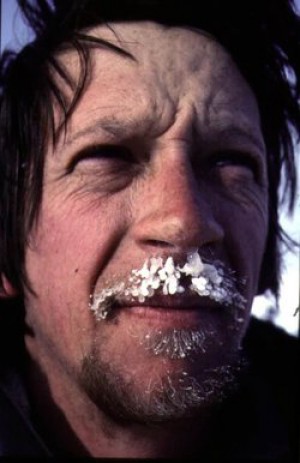John A. Long
John Long born in Melbourne and began collecting fossils there at age 7. In 1971 he won the Victorian Science Talent Search major junior division prize for his work on fossils. John graduated with PhD from Monash University in 1984, and spent 6 years as a postdoctoral researcher in palaeontology...
show more
John Long born in Melbourne and began collecting fossils there at age 7. In 1971 he won the Victorian Science Talent Search major junior division prize for his work on fossils. John graduated with PhD from Monash University in 1984, and spent 6 years as a postdoctoral researcher in palaeontology at universities in Canberra, Perth (as A QEII fellow) and Tasmania before being appointed at the Western Australian Museum in 1989 as Curator of Vertebrate Palaeontology. In 2004 John returned to Melbourne as the new Head of Sciences for Museum Victoria. In 2009 he was appointed as the Vice President of Research and Collections at the Natural History Museum of Los Angeles County, California.John's research has focussed on the early evolution of vertebrates (fishes) as well as dinosaurs and general evolutionary theory. He has collected fossils in Antarctica (2 expeditions), Africa, throughout Asia, and has worked extensively in North America and Europe and in every part of Australia. His gruelling expeditions to Antarctica are documented in his book "Mountains of Madness- A Journey Through Antarctica" (Allen & Unwin 2000). He has published over 200 scientific papers and general science articles, and some 28 books. He has named more than 50 new species of prehistoric creatures. His most recent major papers contributed to solving some of the biggest problems in palaeontology- what killed the Australian megafauna, how fish contributed to the origins of the first land animals, and 2 papers on the origins of sex in vertebrates (all 4 published 2006-09 in the journal Nature).In 2001 John won the prestigious Eureka Prize for the Public Promotion of Science. In 2003 he was awarded the Riversleigh Society Medal for promoting understanding of Australia's prehistoric past. In 2003 his book "Prehistoric Mammals of Australia and New Guina-100 million years of evolution" won a Whitely Award for most popular zoological book. In 2005 his book "Gogo Fish! The Story of the Western Australian State Fossil Emblem" won the Honour Book award for the 2005 Children's Book Council Awards. In 2006 his book "The Big Picture Book, won 2 national awards, and was short-listed for 2 other major childrens's literary awards. In 2008 John won the Australasian Science Prize for his discovery of the world's oldest vertebrate embryos, which also featured in the 2010 edition of the Guinness Book of World Records (under fish).
show less

